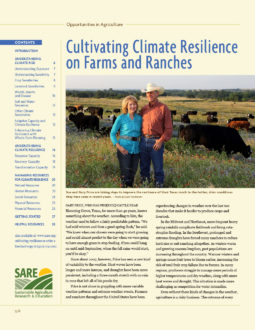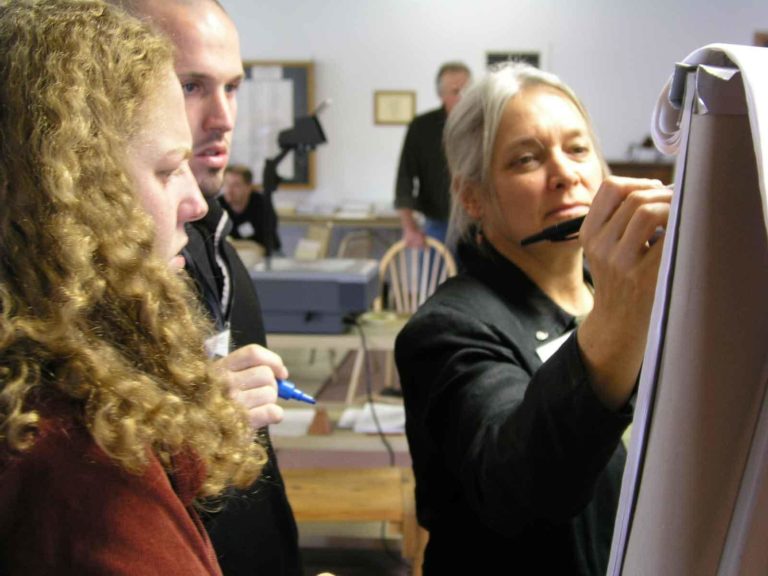Effective climate risk management will depend on human capacity, both on the farm or ranch, and in the local community, to learn, plan for and adapt to changing climate conditions. Taking action to enhance the resilience of your farm or ranch will likely make new and different demands on you, may increase production costs and will likely require a high level of financial and emotional flexibility.
Resilient farmers understand how important people are to the success of their business and they put effort into managing healthy educational, economic and social relationships both on the farm and in the community. Farm managers can cultivate high-quality human resources by promoting the skills, health, well-being and education of all the people who contribute to the success of the operation. This focus on a well-educated, creative, collaborative and experienced team recognizes the special role that people play in the design and management of resilient farms and ranches, and enhances an operation’s capacity to manage change. At the same time, it enhances the quality of life for all who are engaged in the farming operation.
California’s Full Belly Farm has involved an active partnership since 1989 among four owners who live in three households on or close to the farm: Paul Muller, his wife Dru Rivers, Judith Redmond and Andrew Brait. Full Belly Farm was designed to be ecologically diverse to foster sustainability on all levels: from healthy soil to happy customers; a stable, fairly compensated workforce; year-round cash flow; and an engaging workplace that renews and inspires everyone working on the farm. The current business structure supports the integration of the individual skills of each partner and has required the partners to develop strong interpersonal and cooperative skills. “Partnerships are interesting, like a marriage,” Muller said. “You’re not king of the heap. You’re constantly working together.”
The Full Belly Farm business model business model recognizes that farmworkers are essential to their success. “Part of the reason for diversity on this farm is to create stability for our workers,” Muller said. Full-time employees receive health insurance and profit-sharing, and everyone on the farm—the farm partners, their family members and farmworkers—is encouraged to recommend improvements to existing operations and to experiment with new enterprises. According to Muller, “This is work that has some dignity if you give it some dignity.”
Elizabeth Henderson, who runs Peacework Organic CSA in New York, believes that efforts to improve the adaptive capacity of farms are best focused on the human dimensions of agriculture. She now works with the Agricultural Justice Project, which provides certification and technical assistance on fair labor standards. “In these very, very challenging times, having one manager is not enough,” Henderson said. “Everybody on a farm has to be constantly observing, trying to understand and working out how to be nimble together.”
One way to develop an operation’s human resources is to use whole-farm planning and holistic management practices. These strategies encourage full participation in production planning, the freedom to talk openly and honestly, the development of mutually agreed-upon goals, and regular monitoring and reporting of progress towards those goals.
Other helpful practices include the regular participation of farm management and employees in community based education, research and development networks, including organizations that value place-based, traditional agricultural knowledge and traditional foodways.

